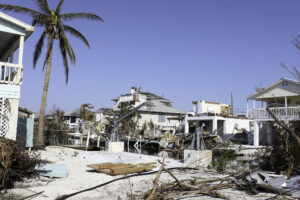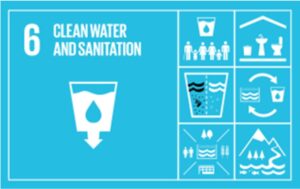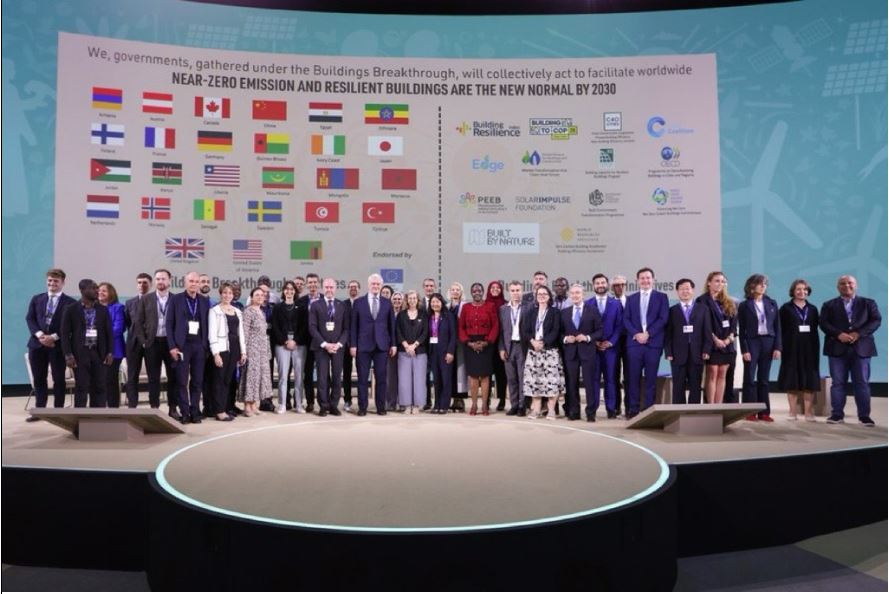
Using Codes and Standards as International Solutions for Global Sustainability and Resilience Objectives
The International Code Council PMG solutions address SDG Goal 6 seeking to ensure the availability and sustainable management of water and sanitation for all.
The construction industry is currently experiencing a significant period of change. While certain impacts may be confined to specific regions or nations, several global events are causing significant repercussions worldwide.
Geopolitical tensions, shortages in construction materials, transportation issues and the scarcity of skilled labor have led to significant disruptions in the building safety industry. Furthermore, communities are grappling with the effects of changing climate, manifested in unpredictable and unprecedented global weather events, alongside the evolving government policies to address and adapt to these issues.

As a global leader across the entirety of the construction sector, the International Code Council is uniquely placed to consider these challenges and lead global collaboration towards building safety solutions.
Addressing UN Sustainability Goal 6 with Codes and Standards
The United Nations (UN) has established 17 Sustainable Development Goals, with Goal 6 seeking to ensure the availability and sustainable management of water and sanitation for all.
In 2022, 2.2 billion people still lacked safely managed drinking water, including 703 million without a basic water service; 3.5 billion people lacked safely managed sanitation, including 1.5 billion without basic sanitation services; and 2 billion lacked a basic handwashing facility, including 653 million with no handwashing facility at all.
See Related: The Code Council’s World Water Awareness Campaign Aims to Combat Global Water Crisis

There has been a significant investment by many countries and organizations seeking to meet the UN Sustainability Goal 6. Codes and standards are essential tools available to assist practitioners in adopting practices that align with the objectives of the UN Sustainable Development Goals.
The focused targets to help achieve this goal in 2030 include:
- Access to adequate and equitable sanitation and hygiene for all, and an end to open defecation
- Improved water quality by reducing the proportion of untreated wastewater and substantially increasing the safe reuse of wastewater globally
- A substantially increased water-use efficiency across all sectors and ensure sustainable withdrawals and supply of freshwater to address water scarcity
- Improve transboundary cooperation to support water harvesting, desalination, water efficiency, wastewater treatment, recycling and reuse technologies
To address some of these objectives, the International Code Council has a suite of existing codes and standards which can serve as valuable resources. These solutions cover the following areas:
- The International Water Conservation Code Provisions®, outlines water conservation and hot water energy-saving requirements that are based on the International Green Conservation Code®, International Energy Conservation Code ®, International Plumbing Code ®, International Building Code ®, and International Residential Code ® along with several Code Council industry standards for both residential and commercial occupancies
- The CSA B805 /ICC 805 Standard for Rainwater Harvesting Systems, provides solutions for the use of rainwater for both potable and non-potable applications including roof-captured rainwater and stormwater runoff
- The RESNET / ICC 850 Standard for the Calculation and Labelling of the Water Use Performance of One-and Two-Family Dwellings, provides a consistent, uniform methodology for evaluating, quantifying and labeling the water use performance of such structures
- Several other Code Council standards that address storm shelters, high wind regions and hazards, and extreme weather events

SEE RELATED: Updated Rainwater Harvesting Standard: Conserving Water for the Long Run
There are also several innovative solutions that the International Code Council is developing, including:
- The new ICC / MBI 1210 Standard for Mechanical, Electrical, Plumbing Systems, Energy Efficiency and Water Conservation in Off-site Construction
- The new ICC 815 Standard (in development) for Sizing Water Distribution, Sanitary Drainage and Vent Piping Systems, will not only focus on pipe sizing but also consider the potential for the build-up of biofilm that can harbor opportunistic pathogens and pathogen spread risks through sanitary plumbing and ventilation systems
- The new ICC 825 Standard (in development) for Private Sewage Disposal Systems will take a global approach to develop minimum requirements to safeguard the health, safety and general welfare of the public and address societal and industry challenges through designing, constructing, operating and maintaining such systems. Furthermore, the new standard will focus on the impacts of climate change, and how better to design and install such systems to be more resilient to extreme weather events
COP 28: Building and Energy Codes Reduce Emissions and Enhance Resilience
The United Nations Framework Convention on Climate Change (UNFCCC), through the UN Secretariat, hosts an annual Conference of Parties (COP), during which parties (national governments) push for reductions in greenhouse gas emissions. During this event each year, sub-national governments, business leaders, academics and various stakeholders, in addition to the national government representatives, get together to spotlight critical issues, discuss solutions, and, for government leaders, make decisions necessary for achieving future climate change objectives.
SEE RELATED: International Code Council Participates at COP28 to Advance Building Solutions for Climate Mitigation and Adaptation

The conference venue varies each year, with the 28th iteration (COP28) taking place in Dubai in 2023.
The building sector is the most significant contributor to the emissions that drive climate change (estimated at 38 percent of all greenhouse gas (GHG) emissions). Globally, building and energy codes provide a highly effective approach to reducing building-related emissions and enhancing resilience.
SEE RELATED: Over 119 Million People to Benefit From Advanced Energy Codes, Surpassing the Code on a Mission Challenge Goal
At COP28, a key outcome was the establishment of the “Buildings Breakthrough,” an initiative aimed at making near-zero emissions and climate-resilient buildings the new normal by 2030.
The “Buildings Breakthrough” initiative focuses on improving energy efficiency and minimizing the carbon footprint for new buildings and substantial renovations. This entails conducting a comprehensive lifecycle assessment, from energy sources to utilizing low-greenhouse gas (GHG) emitting building materials and equipment during construction. Moreover, the initiative prioritizes enhancing building resilience throughout the design, construction, operation and maintenance phases of a building’s lifecycle.
How can you determine if a building or plumbing product contributes low GHG emissions? How can you ensure that the construction project delivers a more resilient outcome? This is where codes and standards become pivotal, and what drives the participation of the International Code Council in the UNFCCC discussions, including offering resources that help policymakers and stakeholders understand embodied carbon in buildings and building materials, as well as enhancing building resilience. It also underpins the International Code Council’s Capacity Building for Sustainable and Resilient Buildings initiative supporting the Buildings Breakthrough.
Some of these solutions include the following standards which are currently in development:
- ICC 1155 Standard for Low-Carbon Alternative Cements Used in Concrete
- ASHRAE/ICC Standard 240P – Evaluating Greenhouse Gas and Carbon Emissions in Building Design, Construction and Operation
Resiliency is at the heart of all new standards under development by the International Code Council.
Through partnerships with national governments, local jurisdictions, standards bodies and regional organizations, the International Code Council develops solutions to address global challenges through model codes and standards, conformity assessment, training, certification and advisory services. This enables the International Code Council to facilitate the development of safe, sustainable and resilient communities around the world.
The Code Council’s PMG team has launched a bimonthly newsletter that covers the latest news in plumbing, mechanical, fuel gas, swimming pool & spa, and more in the U.S. and abroad. Click here or scan the QR code below to subscribe.








